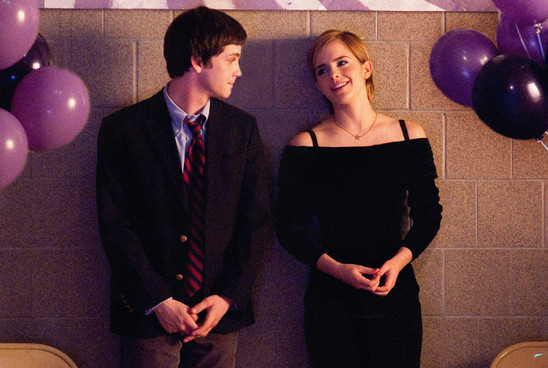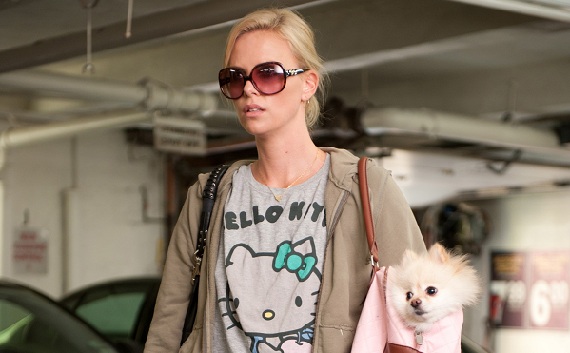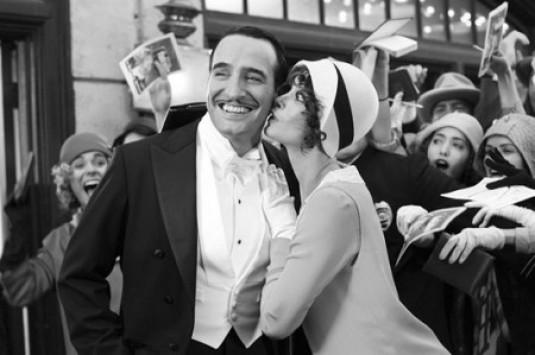I must say that I was pleasantly surprised by the Oscars this year. As a piece of television entertainment, there was barely any drag. Apart from the In Memoriam roll, which doesn't count, there was only one montage, and it was twenty minutes in.
Last year I said that hosts were irrelevant, and that the Oscars are boring and bloated anyway. It may partly be thanks to the fact that I couldn't watch it live this year and was able to skip the ads with extreme prejudice, but I was close enough to entertained by the pageantry and never felt bored or like cussing out the production.
So maybe this is down to Billy Crystal, who actually had a presence beyond last year's intermittent appearances of Anne Hathaway and James Franco, everyone's favourite scapegoats. Crystal's opening song wasn't particularly inspired ("Mr. Joey†was only marginally less engaging than War Horse itself) and, like every single "host inserted into famous movie scenes of the last year†segment to date, this year's showreel ran out of steam fairly quickly after an impressive start.
Despite this, Crystal represents stability. He's a safety blanket. As he said, "Nothing can take the sting out of an economic downturn like millionaires presenting each other gold statues.†He's the host the people of Chapter 11 Theatre need, and it's a happy coincidence that he's also the one they wanted. Rather than taking a backseat, Crystal was all over the show. It's unfortunate that the lesson we take away from this is not "give the Oscar hosts good material to work with and don't make them come across as aloof bastids and the show might work betterâ€, but "we should never give anyone new a chance; as long as Crystal draws breath we don't have to risk employing Allen Ginsberg and his like e'er againâ€.
I've since looked this up and it seems no one liked Crystal. You vultures will never be happy! He wasn't even the baffling part of the show: why was Edward Norton telling us what he thinks of movies? What's he done lately? Nothing for nobody. At any rate, the ceremony is a life support system for giving a bunch of golden dudes to a bunch of rich or aspiring-to-be-rich dudes and dudettes. Let's examine the outcomes.
Hugo and The Artist tied with five awards each, with The Artist taking out the bigger ones of those. Once Dujardin took away his Best Actor award, Crystal informed us that "France is going nuts right now. Or whatever they have instead of joy,†which was the weirdest and cheapest joke to make given the circumstances. What I learned from all of these wins for The Artist is that its cast and crew felt a genuine love and enthusiasm for their work, and that obviously translated across to a lot of the Academy voters. It's a shame that this didn't come across to me, and that I'm just going to look at the Best Picture and Director wins as oddities in the long history of the Oscars. I would try to watch The Artist again, but it's a movie that's not designed to be consumed repeatedly. By contrast, I'm eager to see The Descendants, Hugo and Midnight in Paris again.
Scorsese can be happy with the recognition that Hugo deserved, but I legitimately feel that his love is more apparent on the screen without overwhelming. Unlike Hazanavicius' work, it feels natural rather than forced – which I realise now was not Hazanavicius' intent at all. I'm quite happy with Dujardin's win because he's a genuinely cool dude who tried his darnedest and came through.
As for Meryl Streep, well. I'm not going to complain about her being a career nominee, because that makes no sense: if you're consistently good enough to secure a nomination, then that's just a fact. Equally factual is that Streep's frustrating performance in a less than half baked film was not the best of the five nominees. Michelle Williams should have taken this away: the clip they used to showcase her performance was magical and reminded me that she really is one of the best actresses currently working.
Speaking of showcase clips: the Oscars were hell bent on spoiling the movies this year. Key scenes from The Girl With The Dragon Tattoo, Hugo and The Artist were all prominently featured. When Natalie Portman recapped to Dujardin everything that he did in The Artist, including several of the small delights that the big reveals provided, I couldn't help but recoil in horror. Most people who go to see The Artist because of its win will probably forget everything they've been told, but it's the principle of the thing.
Also less ambiguous is footage of Daniel Craig being gassed and the identity of his antagoniser being shown. There may be a statute of limitation on spoilers, but I'm not convinced that one's passed yet.
I was impressed with both screenwriting credits, because I was very fond of Midnight in Paris and Woody Allen was coming from a personal place of love, both indulging his nostalgic urges and recognising their dangers. The Descendants, apart from being a very good script, means that Jim Rash is now the recipient of an Academy Award. Community, a show that has been consistently lining up sharks and jumping them for a good season and a half now, now stars an Oscar winner.
The rest of the show was pleasant enough, and for the first time in years I didn't get bored and wish for the embrace of death. Good show, Academy. Good show.
PS. In my notes I may have referred to Gwyneth Paltrow as "Goopy McGeeâ€. I'm not proud, but I have no regrets.








